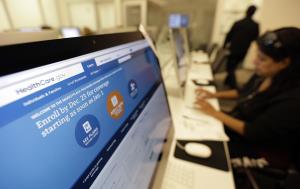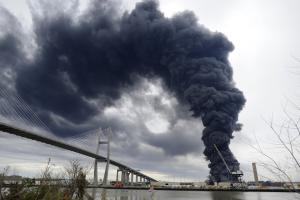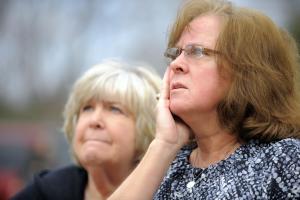Latest Post
Aid convoy fired on in besieged Homs
Aid convoy fired on in besieged Homs
An aid convoy bringing supplies into a besieged district of the Syrian city of Homs is trapped for several hours after coming under fire.
Voters in Tokyo go to the polls on Sunday to elect a new governor in a race seen as a popular verdict on the use of nuclear power.
Norway's Ole Einar Bjoerndalen wins the biathlon 10km sprint to equal the record for most medals won at the Winter Olympics. BBC Sport

An aid convoy bringing supplies into a besieged district of the Syrian city of Homs is trapped for several hours after coming under fire.
- 'Aid teams run for shelter' Watch
- 'Both sides accuse one another' Watch
- 'I am just bones' Watch
- Homs: Syrian revolution's 'capital'
- 'Eating grass to survive'
- A guide to the conflict in Syria Watch
 Governor elections held in Tokyo
Governor elections held in Tokyo
Voters in Tokyo go to the polls on Sunday to elect a new governor in a race seen as a popular verdict on the use of nuclear power.
 Bjoerndalen equals Games medals record
Bjoerndalen equals Games medals record
Norway's Ole Einar Bjoerndalen wins the biathlon 10km sprint to equal the record for most medals won at the Winter Olympics. BBC Sport
Iran says warships sailing towards U.S.: agency
DUBAI (Reuters) - An Iranian naval
officer said a number of warships had been ordered to approach U.S.
maritime borders as a response to the stationing of U.S. vessels in the
Gulf, the semi-official Fars news agency reported on Saturday.
"Iran's military
fleet is approaching the United States' maritime borders, and this move
has a message," the agency quoted Admiral Afshin Rezayee Haddad as
saying.
Haddad, described as
commander of the Iranian navy's northern fleet, said the vessels had
started their voyage towards the Atlantic Ocean via "waters near South
Africa", Fars reported.
Fars said the plan was part of "Iran's response to Washington's beefed up naval presence in the Persian Gulf."
The Fars report, which carried no details of the vessels, could not be confirmed independently.
In
Washington, a U.S. defense official, speaking on condition of
anonymity, cast doubt on any claims that the Iranian ships were
approaching U.S. maritime borders. But the official added that "ships
are free to operate in international waters."
The
United States and its allies regularly stage naval exercises in the
Gulf, saying they want to ensure freedom of navigation in the waterway
through which 40 percent of the world's seaborne oil exports passes.
U.S. military facilities in the region include a base for its Fifth Fleet in the Gulf Arab kingdom of Bahrain.Iran sees the Gulf as its own backyard and believes it has a legitimate interest in expanding its influence there.
Iranian
officials have often said Iran could block the Strait of Hormuz, at the
mouth of the Gulf, if it came under military attack over its disputed
nuclear program, and the Western war games are seen in the region as an
attempt to deter any such move.
Fars said the Iranian navy had
been developing its presence in international waters since 2010,
regularly launching vessels in the Indian Ocean and the Gulf of Aden to
protect Iranian ships from Somali pirates operating in the area.
(Reporting by William Maclean; Additional reporting by Phil Stewart in Washington; Editing by Andrew Heavens and Chris Reese)
Massive Ga. blaze is contained but still burning
SAVANNAH, Ga. (AP) — Firefighters
battled a giant blaze fueled by 5,600 tons of rubber Saturday at the
Port of Savannah, where a towering column of black smoke could be seen
from miles away.
By late
Saturday, the fire department said its crews had contained the fire, but
it could take a while for the flames to burn out inside a warehouse
covering 226,000 square feet at the port's Ocean Terminal just west of
downtown Savannah.
"It is
contained," Savannah Fire and Emergency Services spokesman Mark Keller
said late Saturday afternoon, after the fire had burned for at least
five hours. "Will it burn all night? There's no telling. It's solid
blocks of rubber that are burning."
Keller
said firefighters were surrounding the warehouse with hoses on three
sides and using industrial pumps to suck water from the Savannah River
and blast in through water cannons. Crews will continue soaking into the
night and Sunday if necessary.
The cause of the fire wasn't immediately known, but all port workers were accounted for and unharmed.
No
mandatory evacuations have been ordered. Authorities are asking people
in the downtown historic district, Savannah's tourism hub, to stay
indoors as much as possible to limit exposure to smoke.
Firefighters battle a blaze in a warehouse at the Georgia Ports Authority Ocean Terminal, Saturday, …
Keller said firefighters probably won't be able to get close enough to investigate the cause until Sunday.
"Solid rubber blocks, they're going to burn and we're going to keep putting water on it," Keller said. "We'll just do it until the fire's out."
Savannah-Chatham County police closed some streets near the port terminal and smoke slowed traffic on the Talmadge Bridge that spans the Savannah River to South Carolina. Police also asked a few hotels near the port terminal and the Savannah College of Art and Design, which has buildings in the area, to either evacuate or keep people inside.
"We're not worried about the fire getting over there at this point," said police spokesman Julian Miller. "It's the smoke. It's going to be heavy, oily and ugly."
Visitor Nancy West, right, of Tybee Island, Ga. and her friend Chris Rawlings, left, of Savannah, Ga …
Robert Morris, spokesman
for the Georgia Ports Authority, said the burning area contained about
5,600 tons of imported raw rubber used in manufacturing.
"The warehouse is full of rubber, so it's a rubber fire," he said.
June
Kramarczyk of Bluffton, S.C., and her husband were traveling to
Savannah when they saw the smoke plumes rising in the distance. They
pulled over once they reached the river to get a better look.
"It's
covering the whole sky in front of us, almost as if there was a volcano
going off," Kramarczyk said. "We could see the smoke from 15 miles
away. My husband said, 'That's got to be a huge fire.'"
Morris said smoke could be seen from Tybee Island, about 18 miles east of the port terminal.
The
Port of Savannah is the nation's fourth-busiest seaport for
containerized cargo. The Ocean Terminal, which covers 200 acres, handles
farm equipment and other heavy machinery as well as automobiles and
bulk goods such as wood products and steel.
Exclusive: AIDS patients in Obamacare limbo as insurers reject checks

By Sharon Begley and Julie Steenhuysen
NEW YORK
(Reuters) - Hundreds of people with HIV/AIDS in Louisiana trying to
obtain coverage under President Barack Obama's healthcare reform are in
danger of being thrown out of the insurance plan they selected in a
dispute over federal subsidies and the interpretation of federal rules
about preventing Obamacare fraud.
Some
healthcare advocates see discrimination in the move, but Blue Cross and
Blue Shield of Louisiana says it is not trying to keep people with
HIV/AIDS from enrolling in one of its policies under the Affordable Care
Act, also known as Obamacare.
The state's largest carrier is
rejecting checks from a federal program designed to help these patients
pay for AIDS drugs and insurance premiums, and has begun notifying
customers that their enrollment in its Obamacare plans will be
discontinued.The carrier says it no longer will accept third-party payments, such as those under the 1990 Ryan White Act, which many people with HIV/AIDS use to pay their premiums.
"In no event will coverage be provided to any subscribers, as of March 1, 2014, unless the premiums are paid by the subscriber (or a relative) unless otherwise required by law," Blue Cross Blue Shield of Louisiana spokesman John Maginnis told Reuters.
AIDS FUNDS EXEMPT FROM FRAUD CONCERNS
The
dispute goes back to a series of statements from Centers for Medicare
and Medicaid Services (CMS), the lead Obamacare agency.
In
September, CMS informed insurers that Ryan White funds "may be used to
cover the cost of private health insurance premiums, deductibles, and
co-payments" for Obamacare plans.In November, however, it warned "hospitals, other healthcare providers, and other commercial entities" that it has "significant concerns" about their supporting premium payments and helping Obamacare consumers pay deductibles and other costs, citing the risk of fraud.
View gallery

In this Wednesday, Dec. 11, 2013, file photo, Rosemary Cabelo uses a computer at a public library to …
"As an
anti-fraud measure, Blue Cross and Blue Shield of Louisiana has
implemented a policy, across our individual health insurance market, of
not accepting premium payments from any third parties who are not
related" to the subscriber, Maginnis said.
"The third-party payer guidance CMS released (in November) does not apply to" Ryan White programs.
Maginnis did not respond to further requests, sent after business hours, for comment on CMS's Friday statement.
Hundreds of indigent HIV/AIDS patients are dependent on Ryan White payments for Obamacare because they fall into a gap. They are not eligible for Medicaid, the joint federal-state health insurance program for the poor, because Louisiana did not expand the low-income program, and Obamacare federal subsidies don't kick in until people are at 100 percent of the federal poverty level.
Before Obamacare, the 1990 Ryan White Act offered people with HIV/AIDS federal financial help in paying for AIDS drugs and health insurance premiums, especially in state-run, high-risk pools.
Obamacare, which bans insurers from discriminating against people with preexisting conditions, was designed to replace these high-risk pools.
Starting on October 1, AIDS advocates and others in Louisiana "were enrolling anyone and everyone we could" through the Obamacare exchange, said Lucy Cordts of the New Orleans NO/AIDS Task Force.
Last month, her clients and those of other AIDS groups began to hear from Louisiana Blue that their enrollments were in limbo because the company would not accept the Ryan White checks for premium payments.
The only other carrier that is refusing to accept such payments is Blue Cross Blue Shield of North Dakota, according to a CMS official.
North Dakota Blue "restricts premium payment from third parties including employers, providers, and state agencies," said spokeswoman Andrea Dinneen, but "is currently reviewing its eligibility policies with respect to recipients of Ryan White Program funding."
'SURE LOOKS LIKE DISCRIMINATION'
Healthcare advocates are worried that the refusal to accept Ryan White payments is an effort by insurers to keep AIDS patients from enrolling in their plans and last month began pressing the issue, including with the office of Democratic Senator Mary Landrieu.
In an email reviewed by Reuters, a healthcare expert on Landrieu's staff wrote, "BCBS LA told me their decision was not due to the CMS guidance or any confusion (as we thought before) but was in fact due to adverse selection concerns. I have also recently learned North Dakota's BCBS plan has implemented the same policy."
Jessica Stone, the Landrieu staff member, declined to elaborate on the email further or to discuss her interactions with Louisiana Blue.
Adverse selection refers to the situation where an insurer attracts patients with chronic conditions and expensive care. Louisiana Blue's action "sure looks to us like discrimination against sick people," said John Peller, vice president for policy at the AIDS Foundation of Chicago.
Asked if it were engaging in efforts to avoid adverse selection by refusing to accept Ryan White payments for would-be customers with HIV/AIDS, Louisiana Blue said it was not trying to keep such customers out of its plans. "We welcome all Louisiana residents who chose Blue Cross and Blue Shield of Louisiana," said Maginnis.
(Reporting by Sharon Begley and Julie Steenhuysen; Editing by Peter Henderson and Prudence Crowther)
Cuba Frees Jailed Canadian Businessman
Cuba Frees Jailed Canadian Businessman
TORONTO February 8, 2014 (AP)
By CHARMAINE NORONHA Associated Press

A Canadian businessman who served 2 1/2 years of a 9-year prison sentence in Cuba for corruption has returned to Canada.
Sarkis Yacoubian, president of Tri-Star Caribbean import company, said
Saturday that he's extremely happy and excited to be home in Toronto.
However, he says he is still adjusting after he was given only 24 to 48
hours' notice before his release.
Yacoubian was arrested in 2011 by Cuban authorities but only formally
charged in April 2013 with bribery, tax evasion and "activities damaging
to the economy."
Caitlin Workman, a spokeswoman with Canada's Department of Foreign
Affairs, confirmed that they were aware of his release, saying that he
is home in Canada with his family.
11 Killed, 5 Injured in 2 Albania Car Accidents
TIRANA, Albania February 8, 2014 (AP)
By LLAZAR SEMINI Associated Press

Albanian police say 11 people died in two separate accidents in different parts of the country.
Six people died when a speeding minivan carrying 11 people lost control
and hurtled 100 meters (more than 300 feet) down a cliff, killing six
people and seriously injuring the five others.
The second deadly accident involved two cars in a head-on collision that killed all five passengers.
The first crash occurred on the road to Kukes, 180 kilometers (110
miles) northeast of the capital, Tirana, early Saturday. Police said
three people died immediately and three others perished at a hospital.
Police spokesman Jaho Caushi says four of the injured had
life-threatening injuries and were transported to a hospital in Tirana,
while the fifth person also had serious injuries but wasn't in danger of
dying.
The second accident occurred in the afternoon near the southernmost city
of Saranda, 280 kilometers (170 miles) from Tirana, when two cars
crashed with each other leaving all five passengers in them dead.
Police said they were investigating the cause.
Poor infrastructure and rainy weather have made Albanian roads more dangerous than usual.
Iran, UN Focus on Iran's Alleged Nuclear Arms Work
VIENNA February 8, 2014 (AP)
By GEORGE JAHN Associated Press

Iran is signaling that it will cooperate this weekend with U.N. experts
visiting the country to investigate alleged nuclear weapons activity it
has steadfastly denied, a potentially promising step in a probe that has
been stalled for six years.
But with Iran still denying any attempt to make such arms, the investigators must tread carefully.
As the U.N.'s International Atomic Energy team arrived in Tehran on
Friday, the state IRNA news agency cited Iranian atomic energy
organization spokesman Behrouz Kamalvandi as saying his country is ready
to answer all questions raised by the U.N. agency.
IRNA did not elaborate, and such pledges have been made before. However,
a senior diplomat from an IAEA member nation cited a ranking Iranian
official as telling him and other senior diplomats that Iran was
specifically ready to engage on the weapons program suspicions with the
U.N. experts.
The diplomat demanded anonymity because he wasn't allowed to discuss his private meeting with the Iranian official.
Iran has denied any interest in — or work on — nuclear weapons since the
IAEA started to focus on its atomic activities. Specific attempts to
probe the alleged weapons program first launched in 2007 have made
little progress.
Iran appears to be suggesting it will go into detail on the big topic,
an issue it has previously said was not in the agency's purview or was
based on doctored intelligence. If successful, it will be the first of
what the agency hopes will be a series of increasingly deeper
investigations into the nuclear weapons allegations.
The U.S. and its allies are pushing the IAEA for progress. At the same
time, too much pressure on Iran at the weekend talks between the agency
and Iranian officials could push Tehran back into its shell of secrecy.
That, in turn, may impact negatively on parallel talks between Iran and
six world powers seeking to eliminate fears Tehran may use its nuclear
programs to make weapons. It has agreed to curb its atomic activities in
exchange for sanctions relief.
Those talks are off to a promising start with both sides planning to
meet Feb. 18 to try to translate an interim deal into a permanent
agreement. But Olli Heinonen, who formerly headed the IAEA's Iran probe,
says that — with distrust still high on both sides — a final deal can
be sealed "only if uncertainties over Iran's military nuclear capability
are properly addressed."
Another diplomat said that the IAEA team was carrying a list of alleged
weapons-related experiments that it would present to the Iranian
negotiating team for discussion. Among them, were:
— indications that Iran has conducted high explosives testing and
detonator development to set off a nuclear charge, as well as computer
modeling of a core of a nuclear warhead.
— suspected preparatory work for a nuclear weapons test, and development
of a nuclear payload for Iran's Shahab 3 intermediate range missile — a
weapon that can reach Israel.
—information that Iran went further underground to continue work on
nuclear weapons development past 2003, the year that U.S. intelligence
agencies believe such activity ceased.
Iran has up to now denied the allegations, first published in detail by
the IAEA in November 2011. It has dismissed them as inaccurate or
outright false, based on doctored intelligence from the U.S., Israel and
other Iran adversaries.
The agency is seeking access to individuals, documents and sites linked to these and other alleged nuclear weapons-related work.
The second diplomat, from a Western nation, also demanded anonymity
because he wasn't authorized to share his information. He said the U.S.
and its Western allies had made clear to IAEA chief Yukiya Amano that
they expected progress on clearing up the weapons allegations.
A third diplomat, also from a Western country said agency experts were
planning to allow Iran to ease into cooperation on the weapons
allegations by asking first for less sensitive information. He declined
to give details and demanded anonymity because he wasn't authorized to
discuss confidential negotiating tactics.
In Tehran, meanwhile, Iran's Supreme Leader urged officials Saturday not
to pin hopes for economic recovery on the sanctions relief from the
nuclear deal reached with world powers.
Ayatollah Ali Khamenei also called on critics of the interim nuclear
deal achieved on Nov. 24 in Geneva to be fair and give time to President
Hassan Rouhani to pursue his policy of engagement with the outside
world.
"The only solution to the country's economic problems is to employ
(Iran's) infinite domestic capacities, not to pin hopes on the lifting
of sanctions. No expectations from the enemy," Khamenei told army
officers in Tehran.
Khamenei also defended Rouhani against hardliners in Iran who think the deal gives away too much for too little in return,
"No more than a few months have passed since the (Rouhani) government
took office. Authorities should be given the opportunity to push forward
strongly. Critics should show tolerance toward the government," he said
in comments posted on his website, leader.ir.
Khamenei's support is crucial for Rouhani's diplomatic success in
negotiations with the six-nation group — the United States, Russia,
China, Britain, France and Germany.
—————
Associated Press writer Ali Akbar Dareini in Tehran, Iran, contributed to this report.






